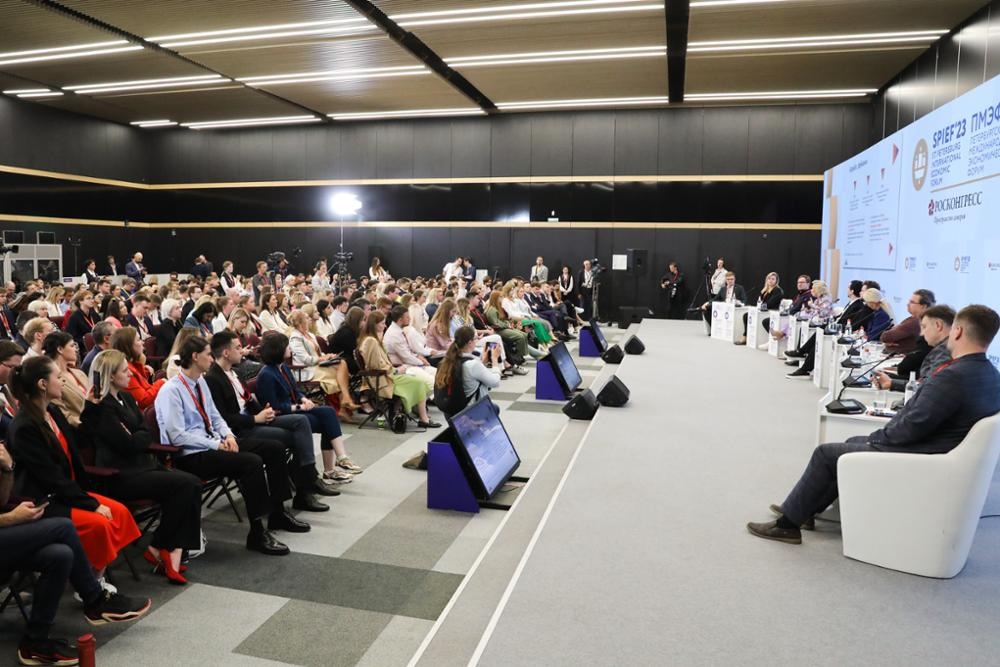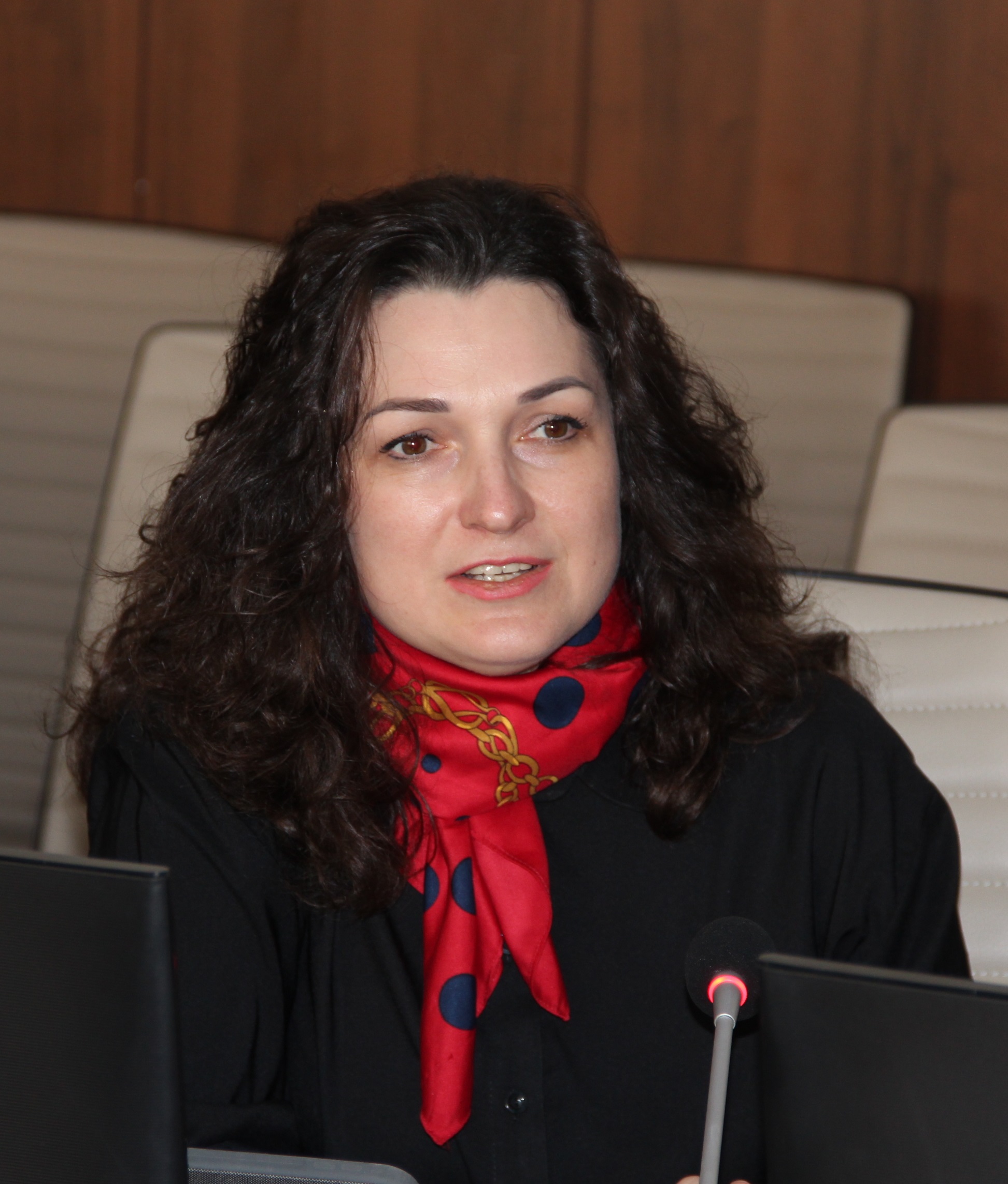Western pressure on Russia and its allies through sanctions plays against the West itself
The future of the international financial system has already arrived. Kyrgyz businesses and government officials should strengthen their positions in it.
Industrial expert Veronika Isaeva stated this in a commentary to Business Eurasia. Tracking the trends of the global economic system using the example of Eurasian countries and the BRICS partners of the EAEU, the economist notes that the long period of artificial restraint of the economies of the Eurasian countries, on the one hand, and pressure from Western countries on Russia, on the other, have produced an unexpected effect.
The interviewee considers the upcoming XXVIII St. Petersburg International Economic Forum to be a striking example. The number of declared delegates and speakers of the largest business event in Europe exceeds 22,000 guests from more than 140 countries.
— This year's SPIEF sounds very contrasting, - Veronika Isaeva shares her impressions. - Despite serious Western sanctions pressure, a large number of foreign delegates are participating. The whole world sees that, in fact, the countermeasures have not so much distracted as attracted attention to Eurasia. Sanctions packages, which were initially applied in order to lose interest in the Russian and Eurasian markets. And today, knowing how many experts are visiting the St. Petersburg forum today, we see the opposite reaction. Pressure and the policy of prohibitions, on the contrary, have attracted outside participation, and people want to discuss both sovereignty and the actions that the West is taking, the United States is taking in relation to the Eurasian continent, including the Middle East. People understand that the sovereignty of production, like the sovereignty of countries, depends, first of all, on economic decisions.
Another economic decision based on political sovereignty concerns the withdrawal of world reserve currencies - the US dollar and the euro - from the circulation of the EAEU and BRICS member countries. The Russian Federation's decision to abandon the dollar in 2021 was announced on the sidelines of the SPIEF-2021 by Finance Minister Anton Siluanov. First Deputy Prime Minister of the Republic Nikolai Snopkov announced Belarus's refusal to use "toxic currencies" in settlements with EAEU member countries in 2023. There are ongoing discussions on this topic in Armenia and Kazakhstan.
Kyrgyzstan has recently demonstrated its commitment to the EAEU course. According to the Law "On Settlements in National Currency" signed by President Sadyr Japarov on April 29, 2025, the use of foreign currencies in the Kyrgyz financial space will be completely excluded in April 2026.
— This is not just the rate of our president, — explains Veronika Isaeva. — This is a general continental rate, and it is connected with the volatility of the dollar, which affected such consumer industries as construction and manufacturing. Ordinary companies could not, and did not have time to somehow reduce their risks of losses due to the dynamic change in the exchange rate difference. And since all operational financial activity was tied to the dollar, because there was a lot of dollar cash, and accordingly, there were a lot of non-cash payments, the rate began to significantly affect the market. Therefore, even at the highest level, the transition to national currencies was initiated - it was based on the economic indicators of production and consumption itself.
The growth of production and consumption of the product is reflected in the trade turnover of the countries participating in international associations, and increasingly forces us to turn to economic diversification. Thus, for example, Kyrgyzstan initiated discussions on joining BRICS in 2024 - development within the EAEU significantly increased the republic's position in politics, and pushed it to further search for external economic cooperation. Bishkek seeks to strengthen and enhance its role in world affairs, promote a multipolar world, participate in solving global problems, and acquire new opportunities for national development.
As of June 2025, the world's largest integration association includes 11 countries, and nine more are partners. The total population of BRICS exceeds 4.5 billion people, or 45% of the world's population, and its GDP is more than 40% of the world's.
Brazilian professor Rodrigo Cesar from the Getulio Vargas Foundation notes the growing influence of the BRICS countries, in particular Russia and Brazil, on the global market.
— They are key suppliers of energy, food and strategic minerals, — the researcher notes. — This position gives them significant influence on global commodity prices, making markets increasingly sensitive to the internal dynamics of the BRICS bloc. Geopolitical tensions and US tariff policy have only reinforced this shift — faced with limited growth and growing tariff isolation, the US economy is “walking on a knife edge.” The contrast is becoming even more pronounced as the BRICS countries simultaneously pursue a de-dollarization strategy, seeking to reduce dependence, and assert their financial autonomy.
Financial autonomy and the move away from dollar settlements lead to the formation of a trading system based on national currencies. In this regard, in 2024, the increased volume of settlements in national currencies, mutual investments, including in infrastructure, became more clearly noticeable.
— In this matter, the first main currency pairs for the Kyrgyz som are som-ruble and som-yuan, because these are the main trade flows for the republic. Everything that concerns the ruble supervision that we see today in our currency market can be attributed to the instruments that the government is forced to use in order to somehow show its absolute openness, and that there are no overflows in Kyrgyzstan. And the financial policy of Sadyr Japarov, as the head of state, is aimed at switching to national currencies in settlements in order to avoid serious economic losses from delayed payments, which directly affects the supply of materials and goods - from exchange rate losses, due to exchange rate volatility, emphasizes Veronika Isaeva.
The SPIEF-2025 organizing committee notes that, despite the proactive position of the countries participating in the Greater Eurasian Partnership, a number of tasks remain unresolved, which limits the speed of building new institutions and, in turn, hinders the development of economies. In this regard, the editorial interlocutor recalls a special factor that distinguishes a native of continental Eurasia.
— Eurasian business is much more mobile than any government official or head of a state enterprise. Therefore, in addition to government delegations, there are many participants who independently register for forums such as SPIEF-2025. There are many large, and even not so large, entrepreneurs who work not only in national markets, but have already begun to enter foreign markets. Alas, they do not speak at sessions, but as listeners they always participate. And it would be useful to involve them in public discussion, and it is necessary to work out this participation at the level of ministries and departments, thereby working out the participation of Kyrgyz companies with the organizers of the St. Petersburg International Economic Forum.
Vasily Kochanov
Business Eurasia

